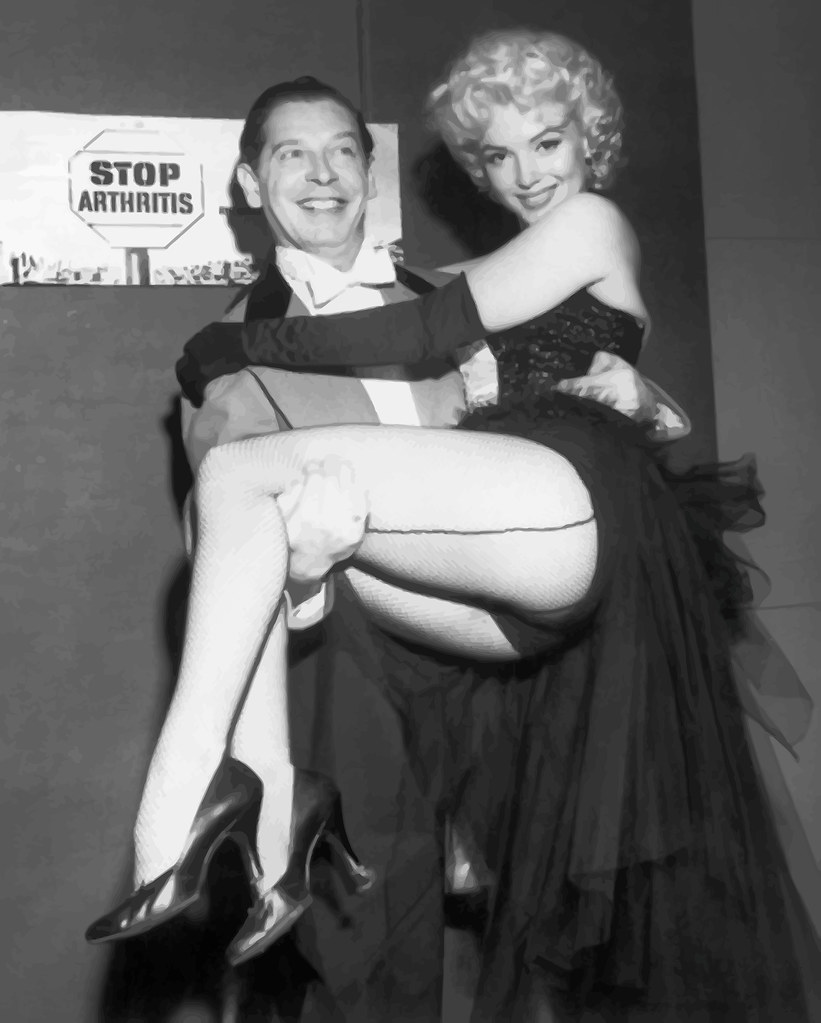
Okay, so picture this: You’re settling in for some late-night laughs, maybe a silly game, a charming interview, all delivered with that signature goofy grin. For years, Jimmy Fallon has been the king of feel-good TV, making us believe that working on “The Tonight Show” must be the absolute dream. I mean, who wouldn’t want to hang out with celebs, play charades, and just generally have a blast? It all seems so effortless, so positive, so… Jimmy.
But what if we told you that behind the curtain of those viral segments and infectious giggles, things might not have been so rosy? What if the dream job for so many aspiring writers and producers reportedly turned into something closer to a nightmare for some? Yeah, it’s a bit of a head-scratcher, especially when you consider Fallon’s public persona is basically a human golden retriever wrapped in sunshine.
Well, buckle up, because a bombshell report from Rolling Stone recently dropped, pulling back the curtain on some seriously eyebrow-raising allegations about the atmosphere at “The Tonight Show Starring Jimmy Fallon.” We’re talking about claims that paint a very different picture of the show’s inner workings, far removed from the joyful vibe we see on screen. It’s time to dive deep into the nitty-gritty and unpack some of the sketchy things that, for a while, everyone just seemed to ignore. Let’s get into it!
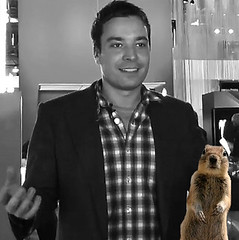
1. **The ‘Toxic Workplace’ Allegations That Rocked the Boat**First up, let’s talk about the big one: the claims that “The Tonight Show” harbored a toxic work environment. In a jaw-dropping exposé published by Rolling Stone, 16 current and former employees spilled the tea, describing a workplace where they allegedly felt belittled and intimidated. This wasn’t just a bad day or two; we’re talking about years of what some staffers called a deeply unpleasant atmosphere.
These individuals, who remained anonymous out of fear of professional repercussions, shared stories that contradicted the show’s upbeat facade. They painted a picture of a workplace where smiles and sunshine were for the cameras, but behind the scenes, things were reportedly much darker. It’s a stark contrast to the lighthearted energy Fallon projects nightly.
The report suggests that the issues weren’t isolated incidents but rather a pervasive culture. “Writing for late night is a lot of people’s dream jobs, and they’re coming into this and it becomes a nightmare very quickly,” one anonymous person reportedly told the magazine. This isn’t just about a stressful job; it’s about an environment that allegedly crushed the very dreams that drew people to it in the first place. That’s a pretty heavy claim to digest, right?
For anyone who loves late-night TV and the magic of “The Tonight Show,” hearing these allegations can be pretty jarring. It makes you wonder what really goes on when the cameras stop rolling and the applause fades. These aren’t just minor gripes; they are serious accusations about the fundamental nature of the workplace. It’s enough to make you look at those celebrity interviews a little differently.
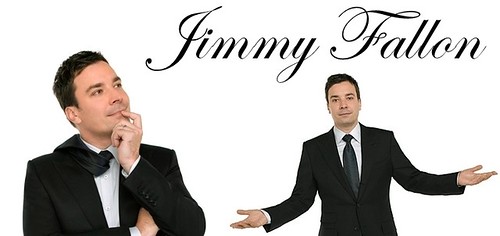
2. **The Infamous ‘Good Jimmy Days’ vs. ‘Bad Jimmy Days’ Phenomenon**Ever wonder if your boss has different moods depending on the day? Well, according to Rolling Stone’s report, “The Tonight Show” staff had a very specific way of classifying Fallon’s demeanor: “good Jimmy days” and “bad Jimmy days.” On the good days, Fallon was reportedly the charming, genial, and witty host everyone knew and loved. But the bad days? Oh boy, those were apparently a whole different ballgame.
Staffers alleged that on “bad Jimmy days,” they would literally walk on eggshells around him. We’re talking about an environment where employees reportedly braced themselves for random outbursts, where Fallon might “snap at crew members” or “berate and belittle staffers” in front of others. Imagine going to work every day not knowing which version of your boss you were going to get. Talk about anxiety-inducing!
One former employee, speaking anonymously, reportedly told Rolling Stone, “Nobody told Jimmy, ‘No.’ You never knew which Jimmy we were going to get and when he was going to throw a hissy fit.” This suggests a lack of accountability or a power dynamic where challenging the host was simply not an option. It sounds like a pretty uncomfortable tightrope walk for everyone involved.
Apparently, there was even a code phrase: “we’re up against it.” This was a common way for staff to signal to each other that it was a “bad Jimmy day.” This kind of internal communication shows just how pervasive and significant this issue reportedly was, creating an atmosphere that employees described as “pretty glum,” where they felt they couldn’t even joke around in the office. It’s a stark contrast to the image of the playful, fun-loving late-night host we’re all familiar with.
Read more about: Under the Microscope: Unraveling the NFL’s Most Contentious Referee Calls and the Mounting Demand for Accountability

3. **The Heartbreaking Mental Health Impact on Former Staff**Perhaps the most gut-wrenching claims from the Rolling Stone report revolve around the severe impact the alleged work environment had on employees’ mental health. This isn’t just about feeling stressed; former “The Tonight Show” employees reportedly described experiencing anxiety attacks, nightmares related to work, hair thinning, weight loss, and, in the most alarming cases, even suicidal thoughts.
Can you imagine a job pushing you to such a dark place? “Mentally, I was in the lowest place of my life. I didn’t want to live anymore. I thought about taking my own life all the time,” another former employee reportedly confessed to Rolling Stone. “I knew deep down I would never actually do it, but in my head, I’m like, ‘Why do I think about this all the time?'” These are incredibly serious claims that underscore the alleged severity of the situation behind the scenes.
In a truly heartbreaking detail, the report mentioned that employees even used dressing rooms as “crying rooms.” Yes, you read that right – designated spaces where staff members could reportedly go to quietly weep and let out their emotions. They even joked about wanting to commit suicide, a chilling indicator of the reported despair and psychological toll the workplace took on them. It’s a far cry from the lighthearted banter that defines Fallon’s public persona.
It’s a powerful reminder that behind every glossy TV production are real people, and their well-being should always be a top priority. These allegations aren’t just about workplace drama; they’re about the reported emotional and psychological trauma experienced by individuals striving to do their best in a high-pressure environment. The idea that a “dream job” could lead to such profound personal suffering is truly unsettling.
Read more about: Yikes! 14 Hollywood Stars Who Acted Like Total Jerks and Seriously Felt the Burn

4. **The Revolving Door of Showrunners: Nine in Nine Years**If you’re looking for a sign that things might be a bit chaotic behind the scenes, a high turnover rate in leadership is usually a pretty good indicator. And “The Tonight Show Starring Jimmy Fallon” has reportedly seen its fair share of changes at the top. Since Fallon took over the hosting gig in 2014, the show has reportedly gone through nine different showrunners in nine years. Let that sink in for a moment: nine showrunners in nine years!
That’s an average of one new showrunner every single year! In the demanding world of late-night television, a steady hand at the helm is crucial for stability and direction. Such a rapid succession of leaders suggests a significant underlying issue, whether it’s an inability to manage the show’s complexities, challenges in working with the star, or both. It’s certainly not a picture of smooth sailing.
The context suggests that these showrunners, who are top-level TV producers, reportedly struggled to gain control or make lasting changes. The magazine stated that they “reportedly didn’t know how to say no to the popular star.” This implies a power dynamic where Fallon’s alleged erratic behavior went unchecked, and leaders felt powerless to intervene effectively. A show needs a strong, consistent vision, and this kind of instability at the top could easily contribute to a chaotic and unpredictable workplace.
Some employees reportedly attributed this constant change to the absence of Michael Shoemaker, who had led Fallon’s previous show, “Late Night With Jimmy Fallon.” Shoemaker stayed with “Late Night” when Seth Meyers took over, leaving “The Tonight Show” to seemingly flounder in its leadership structure. This revolving door isn’t just a fun fact; it’s a potential symptom of a deeper, systemic problem that could contribute to the alleged toxic environment reported by staff. It’s a huge red flag that something deeper might be going on.
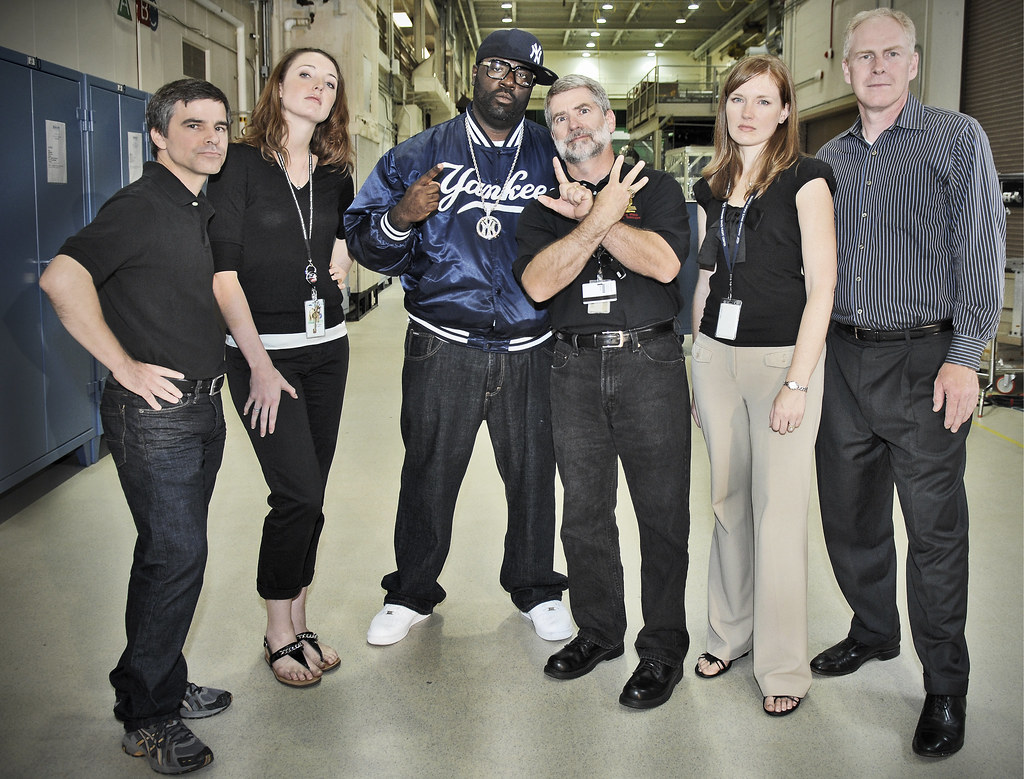
5. **The Alleged Jerry Seinfeld Scolding Incident (and Seinfeld’s Side of the Story)**Sometimes, a single incident can crystallize all the underlying tensions, and for “The Tonight Show,” one such moment reportedly involved none other than comedy legend Jerry Seinfeld. Two former employees shared an incident where they claimed Fallon publicly scolded a crew member holding cue cards during a taping, all while Seinfeld was present. Talk about an awkward moment for everyone in the room!
“It was very awkward, and Jerry was like, ‘You should apologize to him,’ almost trying to make it a joke,” a former employee reportedly told Rolling Stone. “It was one of the strangest moments ever and so many people were there, so it’s kind of hard to forget.” If true, this paints a picture of Fallon’s alleged behavior being so overt and uncomfortable that even a guest star felt compelled to interject, albeit in a lighthearted way. It’s the kind of story that sticks with you.
However, this particular anecdote comes with a twist! Following the publication of the article, Jerry Seinfeld himself reportedly sent a statement to the magazine, vigorously refuting the account. “This is so stupid. I remember this moment quite well… I teased Jimmy about a flub, and we all had a fun laugh about how rarely Jimmy is thrown off. It was not uncomfortable at all. Jimmy and I still occasionally recall it and laugh. Idiotic twisting of events,” Seinfeld stated.
So, what do we make of this? It’s a classic case of “he said, she said.” While the former employees recall a moment of public humiliation, Seinfeld remembers it as a lighthearted joke. This discrepancy highlights the challenge in piecing together a definitive narrative when different parties have vastly different recollections, especially when emotions and personal experiences are involved. It certainly adds another layer to the already complex story.
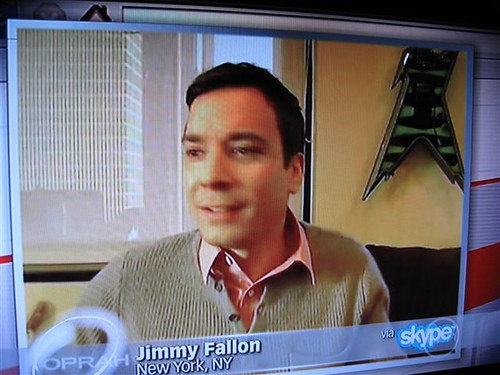
6. **Concerns Over Fallon’s Drinking Habits Making Headlines**Beyond the workplace dynamics, another “sketchy thing” that has lingered around Jimmy Fallon involves concerns about his alleged drinking habits. Back in 2016, the New York Post reportedly published claims that NBC bosses were worried about Fallon’s drinking after a series of incidents. These included severing his ring finger and chipping a tooth, along with reports of him being seen alone at a NYC bar at 3 a.m. “very drunk” in 2015. Yikes, those are some pretty specific details!
Fallon himself reportedly addressed these claims in a 2017 New York Times profile, denying them outright. “I could never do a day-to-day job if I was drinking every night,” he stated, pushing back against the narrative. It’s a direct rebuttal from the man himself, attempting to put the rumors to bed. However, the Rolling Stone report reignited these concerns with new claims.
In a more recent development related to the workplace allegations, four employees reportedly told Rolling Stone that they believed there were separate times in 2017, 2019, and 2020 when Fallon either appeared inebriated or they smelled alcohol on his breath. These are, of course, allegations from unnamed sources, but they certainly add another layer of complexity to the overall picture of the “Tonight Show” environment.
These concerns, whether substantiated or not, contribute to the general cloud of “sketchy things” that have been associated with Fallon over the years. When combined with the alleged erratic behavior and workplace toxicity, they paint a more nuanced, and perhaps troubling, portrait of the host than his public persona suggests. It leaves us wondering about the full story behind the cheerful smile.
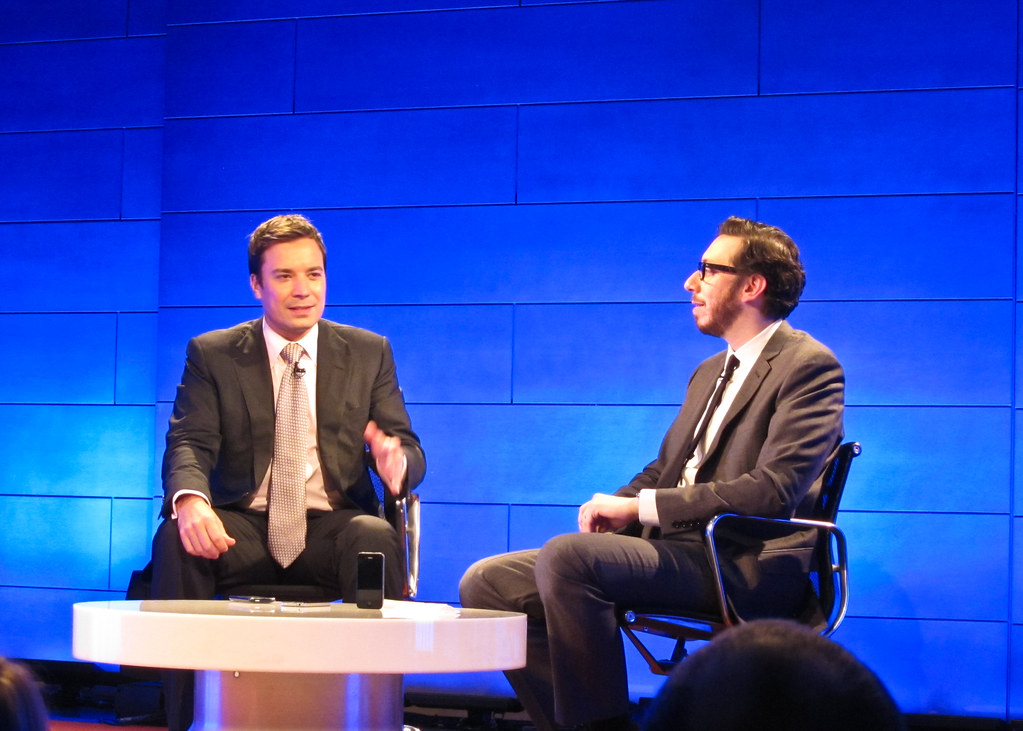
7. **Fallon’s Private Apology: A Behind-the-Scenes Confession**Just hours after the explosive Rolling Stone exposé hit the internet, Jimmy Fallon reportedly gathered his current staff for an all-hands Zoom call. It was a moment many had been waiting for, a chance for the host to address the swirling allegations directly. And address them he did, with an personal apology that was both personal and reportedly heartfelt, according to unnamed employees on the call.
“It’s embarrassing and I feel so bad,” Fallon reportedly confessed during the meeting, his showrunner Chris Miller also present. “Sorry if I embarrassed you and your family and friends… I feel so bad I can’t even tell you.” He reportedly clarified that he never intended to “create that type of atmosphere for the show,” emphasizing his desire for “The Tonight Show” to be a place that is “fun” and “inclusive to everybody.”
For those in attendance, these words reportedly “felt pretty earnest.” It was a moment of direct communication from the top, acknowledging the pain and discomfort that had been brought to light. While a private apology, it offered a glimpse into the internal reckoning happening behind the cheerful facade of late-night television. It was a step, albeit a contained one, towards acknowledging the reported issues.

8. **The ‘Blackface’ Incident: A Previous Public Reckoning**Interestingly, this isn’t the first time Jimmy Fallon has faced public scrutiny and issued an apology for his past actions. Back in 2020, a resurfaced clip from a “Saturday Night Live” sketch, originally aired in 2000, caused a significant stir across social media. The clip showed Fallon performing an impersonation of comedian Chris Rock while appearing in blackface, sparking a wave of immediate criticism.
The backlash was swift and intense, leading Fallon to issue a public apology for the sketch. This incident serves as a crucial point of comparison in the current situation, as it highlights Fallon’s capacity for public accountability when faced with widespread outrage. He addressed it on air, taking a personal stance on the matter.
In a New York Times profile, Fallon reportedly reflected on his approach to that particular apology, stating, “I can’t let a corporation give me a planned statement to say,” and “I can’t ask a publicist to give me a planned statement.” This earlier demonstration of taking direct, public ownership contrasts sharply with his more recent, private approach to the workplace allegations, raising questions about differing standards of accountability. It makes you wonder what factors determine the choice between a public and private statement.

9. **The Striking Divide: Public Silence for Former Staffers**While Jimmy Fallon’s private apology to his *current* staff was a significant moment for those still on the team, it left a profound void for many former employees. The very individuals who had bravely stepped forward to share their experiences in the Rolling Stone report, often citing severe mental health impacts, reportedly felt overlooked and unheard. For them, a Zoom call exclusively for current staff simply didn’t cut it.
These former staffers reportedly expressed deep disappointment that Fallon had not seized the opportunity to publicly address the allegations. They craved a public acknowledgment, not just for themselves but for the wider audience and for anyone who had suffered in the alleged toxic environment. “I don’t know what the full apology was like because I wasn’t there, so it’s great if people who still work there got some closure out of it but as someone who was not spoken to it’s hard for me to feel like there’s any closure,” one former employee reportedly told Rolling Stone.
They believed that a public apology, whether directly from Fallon or from NBC, would have been “the most accountable and responsible thing to do.” Considering the high turnover rate and the number of people who had left the show due to the alleged conditions, an apology directed at them was seen as crucial for true healing and closure. “Would I have loved that apology to some extent, whether it be from NBC or Jimmy directly, have gotten to former staff? Yes,” another former employee reportedly stated, highlighting the lingering sense of unaddressed pain.
The comparison to the blackface incident is particularly salient here. Former employees pointed to that past public apology as the kind of accountability they’d hoped for this time around. “A public acknowledgment would’ve been cathartic,” one former staffer reportedly said, suggesting that while Fallon owned his behavior privately, the lack of public recognition for the widespread allegations felt like a continued omission. It’s a powerful statement about the difference between an internal reckoning and a public owning of one’s actions.
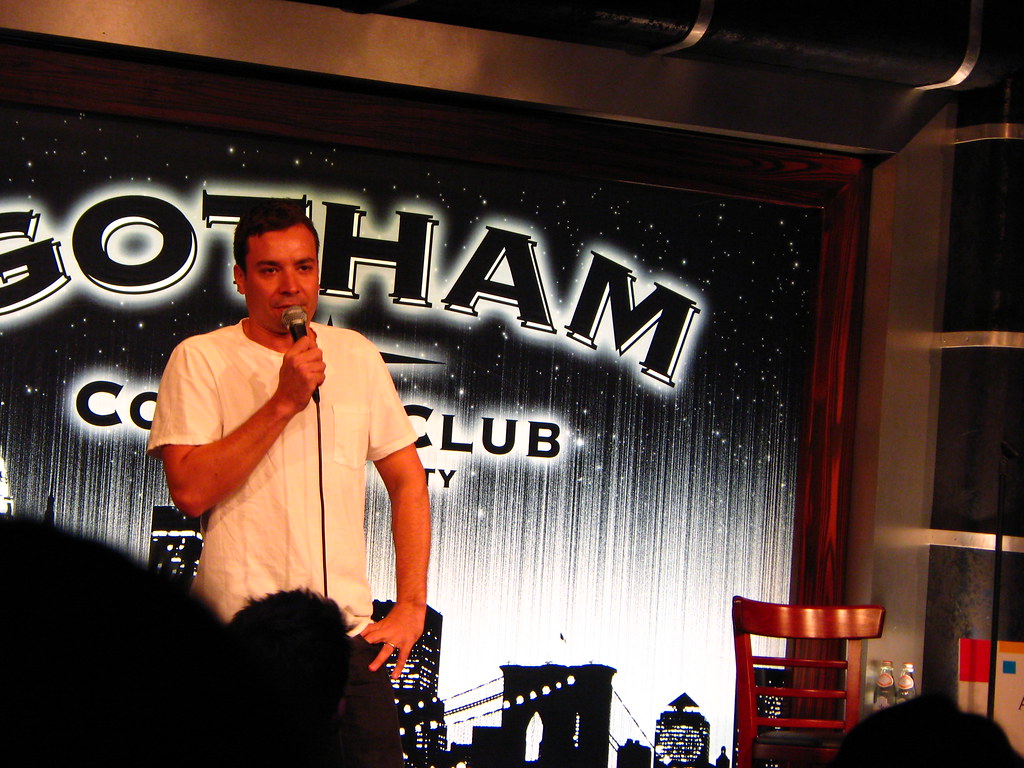
10. **NBC’s Official Stance: A Priority on a ‘Respectful Working Environment’**In response to the serious allegations outlined in the Rolling Stone report, NBC, the network behind “The Tonight Show,” issued an official statement. This statement was included in the original exposé, offering the network’s perspective on the matter. It aimed to reassure the public and employees that workplace well-being was a primary concern, even as the specific accusations against Fallon and the show mounted.
“We are incredibly proud of The Tonight Show, and providing a respectful working environment is a top priority,” NBC’s statement read. The network acknowledged that “As in any workplace, we have had employees raise issues; those have been investigated and action has been taken where appropriate.” This suggests that previous complaints had been processed internally, though the Rolling Stone report indicated that many issues remained unresolved for the anonymous sources.
The statement concluded by encouraging employees to report concerns: “As is always the case, we encourage employees who feel they have experienced or observed behavior inconsistent with our policies to report their concerns so that we may address them accordingly.” What’s noteworthy is what the statement *didn’t* include: it conspicuously avoided mentioning Jimmy Fallon by name, nor did it specifically address any of the incidents detailed in the Rolling Stone story. It was a broad, corporate response that stuck to general principles, rather than delving into the specifics of the alleged “toxic workplace.”
This approach from NBC highlights the delicate balance networks often try to strike when faced with controversies involving their biggest stars. While affirming a commitment to a healthy workplace, the network seemingly sought to protect its valuable asset by avoiding direct engagement with the more damaging accusations. It leaves us wondering about the true depth of the investigations mentioned and the “actions” taken, given the widespread and consistent nature of the employees’ claims.
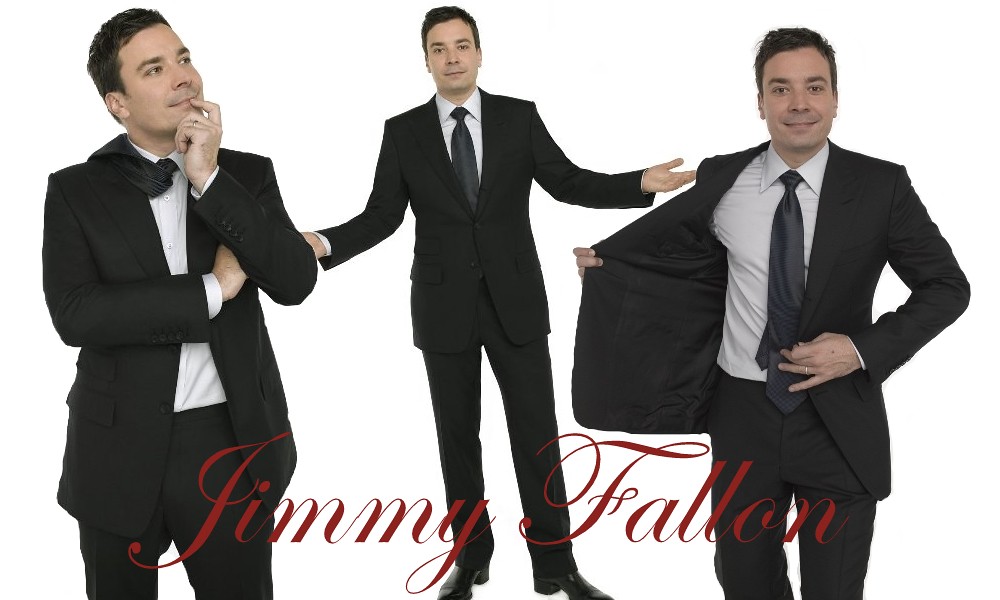
11. **The Counter-Narrative: Current Staffers Step Up to Defend Fallon**Amidst the swirling storm of allegations, a different voice began to emerge: that of current “The Tonight Show” employees. While 16 current and former staffers contributed to the damning Rolling Stone report, some of the show’s nearly 300 current employees reportedly came forward to offer a counter-narrative, defending Fallon and the current atmosphere of the show. Their statements painted a much sunnier picture, directly challenging the notion of a “toxic workplace.”
One current employee, speaking anonymously to People magazine, described Fallon as “a really, really positive guy.” This individual reportedly added, “He makes a point of commending you when you do a great job and when he’s happy,” and emphatically stated, “I’ve never been belittled, yelled at, nothing like that.” This perspective offers a stark contrast to the claims of “bad Jimmy days” and public berating, suggesting that not all employees experienced the same alleged negativity.
Another current staffer told People that they were “really happy to work there right now” and claimed they hadn’t even heard of “crying rooms” — a detail that had become a chilling symbol of the alleged mental health toll. Furthermore, a source close to the show reportedly told Insider that under the current showrunner, Chris Miller (who took the reins in March 2022), there haven’t been formal complaints. A current show producer even described being part of “The Tonight Show” as “nothing less than a dream come true,” praising the “fun and collaborative team.”
These contrasting testimonies reveal the complexity of workplace dynamics, where experiences can vary wildly even within the same organization. It highlights that while some individuals may have suffered greatly, others genuinely find the environment positive and supportive. This divergence in experiences adds another layer to the “sketchy things” surrounding Fallon, making it harder to draw a single, definitive conclusion about the show’s culture.

12. **The Ironic Twist of the ‘Strike Force Five’ Podcast**Perhaps one of the most intriguing and, for some, ironic developments in the wake of the “Tonight Show” allegations was Jimmy Fallon’s involvement in the “Strike Force Five” podcast. Launched in late August, this collaborative effort brought together five of late-night television’s biggest names – Fallon, John Oliver, Stephen Colbert, Jimmy Kimmel, and Seth Meyers. The podcast’s noble purpose? To generate proceeds that would financially aid their out-of-work staffs during the ongoing Writers Guild of America (WGA) and SAG-AFTRA strikes.
The podcast was hailed as a show of solidarity among late-night hosts, a way to support the very people whose livelihoods were impacted by the Hollywood labor disputes. However, the timing of the Rolling Stone report, which detailed allegations of a toxic work environment and mental health struggles for “Tonight Show” staff, cast a peculiar shadow over Fallon’s participation. Here was a host ostensibly supporting staff well-being on one public platform, while simultaneously facing accusations of *causing* staff distress on another.
It creates a fascinating, almost bewildering, juxtaposition: Fallon advocating for staff welfare through the podcast, while his own former employees were coming forward with stories of severe mistreatment. The episodes themselves were reportedly pre-recorded, meaning the allegations against Fallon would not have been addressed within the podcast, further emphasizing the chasm between public action and private controversy. It’s a situation ripe with irony, prompting observers to question the sincerity of public gestures when private realities are reportedly so different.
The “Strike Force Five” podcast serves as a potent symbol of the complicated narrative surrounding Jimmy Fallon. On one hand, it showcased his role in a collective effort to do good for striking workers. On the other, it underscored the stark contrast between his public persona as a benevolent leader and the private allegations of a troubled workplace. It certainly makes you pause and think about the multiple facets of celebrity and leadership in today’s media landscape.
**Conclusion: Beyond the Giggles and Games**
So, there you have it. A deep dive into the layers of allegations, denials, and counter-narratives that have painted a far more complex picture of Jimmy Fallon and “The Tonight Show” than most viewers ever imagined. From claims of a toxic workplace and mental health crises among staff to a revolving door of leadership, the joyful, easygoing host we know and love has found himself at the center of a serious storm.
We’ve seen the uncomfortable “good Jimmy days” versus “bad Jimmy days” dynamic, heard about dressing rooms reportedly turned into “crying rooms,” and grappled with the differing accounts of incidents like the Jerry Seinfeld scolding. While Fallon has privately apologized to his current staff, a lingering question remains about accountability for those who left, feeling unheard and unseen. And then there’s the blackface incident, a stark reminder of past public reckonings, and the ironic backdrop of the “Strike Force Five” podcast, where Fallon publicly supported staff while facing private accusations of mistreatment.
Read more about: Beyond the Headlines: Exploring the Dark History and Enduring Legends of Serial Killers
NBC has stated its commitment to a respectful environment, and crucially, some current staffers have enthusiastically defended the show, sharing positive experiences that stand in direct opposition to the earlier claims. This tapestry of testimonies means there’s no single, easy answer, no simple “good guy” or “bad guy” narrative. Instead, we’re left with a nuanced, sometimes unsettling, portrait of a beloved public figure and the demanding, high-pressure world of late-night television. It’s a messy, human story, reminding us that even the most effervescent personalities can have complexities bubbling just beneath the surface. And it definitely makes you rethink that casual laugh track.


